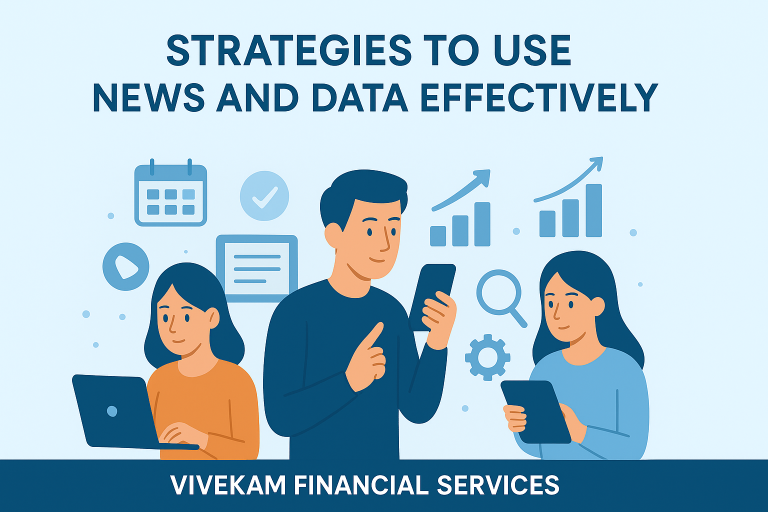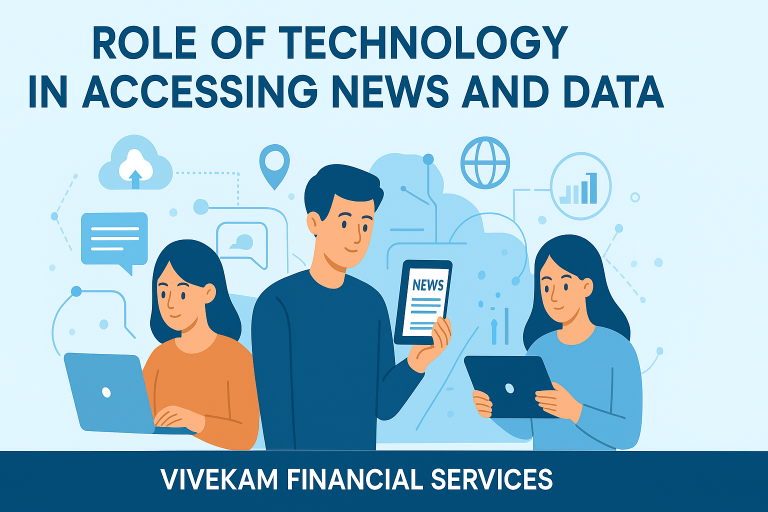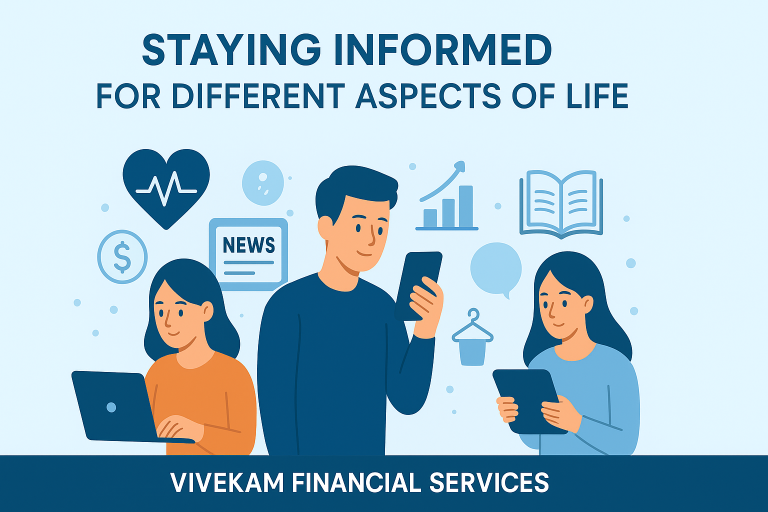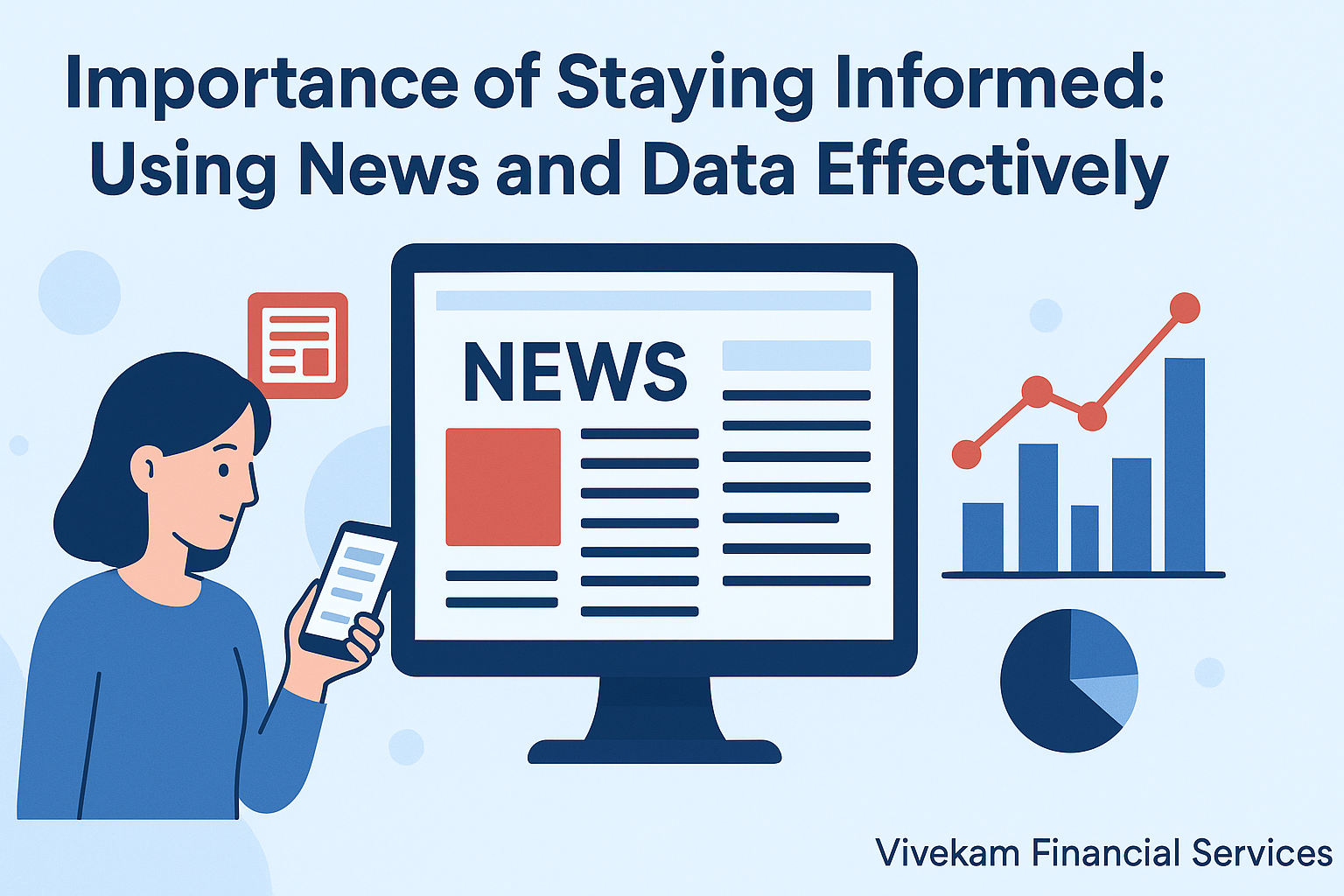Importance of Staying Informed: Using News and Data Effectively

Introduction: Why Staying Informed Matters in Today’s World
Let’s be honest — the world moves fast. Blink, and you might miss a major political shift, a market crash, or the latest health trend everyone’s suddenly talking about. Staying informed isn’t just a “nice-to-have”; it’s survival. Whether you’re making decisions about your money, your career, or simply trying to be a responsible citizen, the importance of staying informed is crystal clear.
This article breaks down why being tuned in matters, the pitfalls to avoid, and how you can actually use news and data in a way that adds value to your life instead of draining it.
The Role of News and Data in Modern Society
Understanding the difference between news and data
Here’s the deal: news tells you what’s happening, while data shows you the proof. Think of news as the story and data as the receipts. Without both, you’re either getting half the truth or missing the bigger picture.
The evolution of information consumption
Gone are the days of waiting for tomorrow’s paper. Now, headlines find you before you even roll out of bed. This shift has democratized information, but it also means we’re all swimming in a sea of noise. The challenge? Learning to filter signal from static.
Benefits of Staying Informed
Personal decision-making and awareness
Want to make better choices? Stay informed. From choosing healthier habits to deciding whether it’s the right time to invest, knowledge is leverage. Ignorance, on the other hand, can be very expensive.
Professional growth and career opportunities
The most successful professionals aren’t just good at their jobs — they know what’s happening in their industry and beyond. If you’re the one bringing fresh insights to meetings, you’re instantly more valuable.
Civic engagement and social responsibility
Democracy thrives when citizens are informed. Voting, community action, even having meaningful conversations — all of these are stronger when fueled by facts, not hearsay.
Challenges of Staying Informed
Information overload and data fatigue
Here’s the ugly truth: too much information is just as bad as too little. Between endless notifications, trending hashtags, and “breaking news” banners, it’s easy to feel fried.
Fake news, misinformation, and bias
If something sounds too outrageous to be true, it probably is. The problem? Sensational lies travel faster than boring truths. And without a healthy dose of skepticism, anyone can fall into the trap.
The digital divide and unequal access to information
It’s not just about having Wi-Fi — it’s also about knowing how to use it. Many people don’t have the same tools or media literacy, which leaves them on the sidelines of critical conversations.
Strategies to Use News and Data Effectively

Setting clear goals for information consumption
Don’t just scroll aimlessly. Decide what you’re looking for. Are you tracking market shifts? Following health guidelines? Keeping an eye on politics? When you set a purpose, information becomes fuel instead of fluff.
Fact-checking and source verification
Quick rule: if you wouldn’t bet $50 on it being true, double-check it. Cross-reference with credible outlets, use fact-checkers, and don’t take screenshots on social media as gospel.
Leveraging reliable data sources and tools
Stick with data from trusted organizations — WHO, UN, World Bank — or use dashboards that visualize the numbers. Good data makes you smarter; bad data makes you misinformed with confidence.
Role of Technology in Accessing News and Data

News apps and aggregators
Apps like Google News or Flipboard cut through the chaos by serving a curated feed. The upside? Less scrolling. The downside? If you don’t diversify, you may only see what algorithms think you want.
Data analytics and visualization tools
Numbers alone don’t tell a story — visuals do. Platforms like Tableau and Google Data Studio make complex data digestible, so you can actually understand trends without being a statistician.
Artificial intelligence and personalized feeds
AI is both a blessing and a curse. Sure, it delivers exactly what you want — but too much of that turns your feed into an echo chamber. Balance convenience with curiosity.
Staying Informed for Different Aspects of Life

Personal finance and investment decisions
Markets are volatile, and ignorance is costly. Real-time financial data gives you an edge, whether you’re trading stocks, exploring crypto, or simply budgeting better.
Health and wellness choices
From COVID updates to fitness studies, staying informed about health helps you make smarter lifestyle choices. Reliable health data is literally the difference between prevention and regret.
Education and lifelong learning
Knowledge doesn’t stop at graduation. In a world where industries evolve overnight, continuous learning fueled by updated information is the secret to staying relevant.
Global issues and environmental awareness
Climate change, wars, humanitarian crises — these aren’t distant problems. Being informed helps you understand your role in global solutions, from sustainable living to advocacy.
Balancing Information with Critical Thinking
Avoiding echo chambers and confirmation bias
It feels good to read things that confirm your beliefs, but growth happens when you explore the uncomfortable. Seek out sources that challenge you.
Developing media literacy skills
Headlines are designed to hook, not always to inform. Train yourself to look past the clickbait and dig into the facts. Media literacy is your shield against manipulation.
Encouraging open dialogue and diverse perspectives
Real conversations happen when you listen as much as you speak. Different viewpoints broaden your perspective and sharpen your critical thinking.
Best Practices for News and Data Consumption
Setting time limits and routines
Constant news alerts = constant stress. Choose when you’ll engage with the news instead of letting it hijack your day.
Using curated newsletters and podcasts
Think of newsletters and podcasts as your cheat codes for staying informed. They condense the noise into digestible, relevant chunks.
Building a habit of reflective learning
Don’t just skim — reflect. Ask: How does this impact me? My community? The bigger picture? That’s how information turns into wisdom.
Future of Staying Informed
The impact of big data and open access information
Big data is unlocking insights that were once hidden. Open access means the power to analyze isn’t just for academics — it’s for anyone willing to look.
The role of journalism in the digital age
Despite all the noise, good journalism still matters. Investigative reporting, fact-based analysis, and storytelling are the backbone of accountability.
Ethical considerations in information sharing
From deepfakes to privacy breaches, the future of news and data isn’t just about access — it’s about responsibility. Ethical consumption and sharing will be more critical than ever.
FAQs on Staying Informed and Using Data
- Why is it important to stay informed?
- Because ignorance costs — in money, in health, and in opportunities.
- How can I avoid information overload?
- Set boundaries. Curate your sources. Less scrolling, more learning.
- What are the best tools for fact-checking news?
- Snopes, PolitiFact, FactCheck.org — and your own critical thinking.
- How does staying informed improve career prospects?
- Knowledge makes you valuable. If you know where your industry is heading, you’ll always be ahead of the curve.
- What role does critical thinking play in using data effectively?
- It’s the filter that separates facts from fluff. Without it, even good data can mislead you.
- Can technology make staying informed easier?
- Absolutely — but it can also make you lazy. Use it as a tool, not a crutch.
Conclusion: Harnessing News and Data for a Better Tomorrow
Staying informed isn’t about drowning in headlines — it’s about choosing wisely, questioning deeply, and applying information in ways that improve your life. The flood of data isn’t slowing down anytime soon, but with the right habits, you can surf the waves instead of sinking beneath them.
Knowledge is power, sure. But applied knowledge? That’s transformation.







